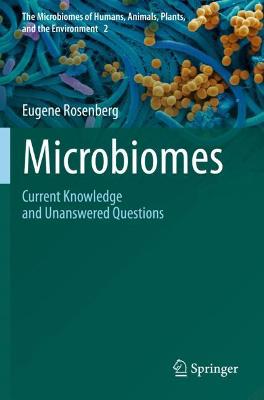(To see other currencies, click on price)
MORE ABOUT THIS BOOK
Main description:
This book examines an important paradigm shift in biology: Plants and animals, traditionally viewed as individuals, are now considered to be complex systems and host to a plethora of microorganisms. After first presenting historical aspects of microbiota research, bacterial compositions of individual microbiomes and the critical analysis of current methods, the book discusses how microbial communities inside the human body are profoundly affected by numerous factors, such as macro- and micro-nutrients, physical exercise, antibiotics, gender and age. As described by current research, the author highlights how microbiomes contribute to the fitness of the host by providing nutrients, inhibiting pathogens, aiding in the storage of fat during pregnancy, and contributing to development and behavior. The author not only focusses on prokaryotic components in microbiomes, but also addresses single-cell eukaryotes and viruses.
This follow-up to the successful book The Hologenome Concept: Human, Animal and Plant Microbiota, published in 2013, provides a contemporary overview of microbiomes. It appeals to anyone working in the life sciences and biomedicine.
Contents:
1. Introduction2. Composition of Microbiomes
3. Dynamics of Microbiomes
4. Contribution of Microbiomes to Fitness
5. Contribution of Microbiomes to Fitness
6. Eukaryotic Microorganisms in Microbiomes
7. Viromes
8. Genetic Variation in Holobionts
9. Role of Microbiota in Evolution: Hologenome Concept
10. Pathogens as Symbionts
11. Application of Microbiome Research to Prevention and Cure of Disease
PRODUCT DETAILS
Publisher: Springer (Springer Nature Switzerland AG)
Publication date: March, 2022
Pages: 431
Weight: 682g
Availability: Available
Subcategories: Microbiology

